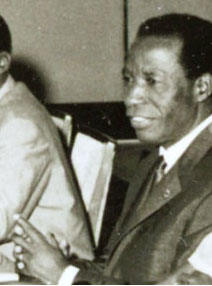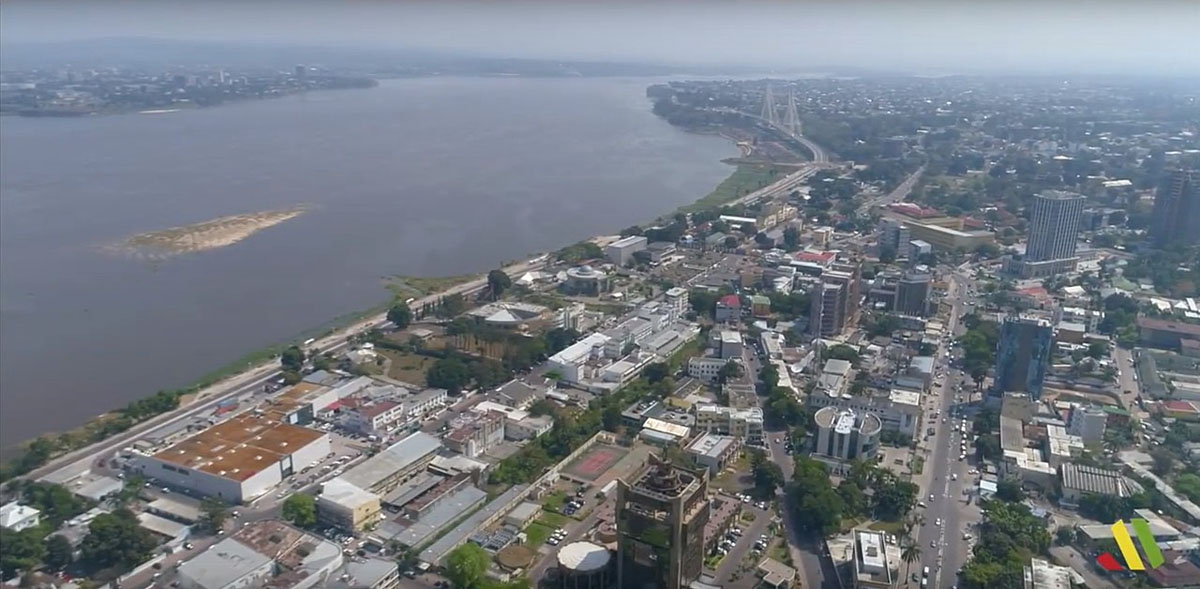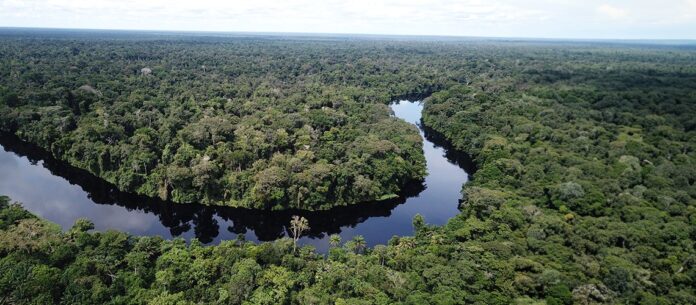History
Bantu-talking people groups who established clans during the Bantu extensions, generally dislodged and consumed the previous occupants of the area, the Dwarf public, around 1500 BC. The Bakongo, a Bantu ethnic gathering that involved pieces of what later is Angola, Gabon, and the Majority rule Republic of the Congo, shaped the reason for ethnic affinities and competitions among those nations. A few Bantu realms — including those of the Kongo, the Loango, and the Teke — constructed exchange joins driving into the Congo Bowl.
The Portuguese adventurer, DiogoCão arrived at the mouth of the Congo in 1484. Business connections developed between the inland Bantu realms and European vendors who exchanged products, fabricated merchandise, and individuals caught and oppressed in the hinterlands. After hundreds of years as a focal center point for transoceanic exchange, direct European colonization of the Congo stream delta started in the nineteenth 100 years, consequently dissolving the force of the Bantu social orders in the locale.
The region north of the Congo Waterway went under French sway in 1880 because of Pierre de Brazza’s arrangement with Lord Makoko[23] of the Bateke. After the passing of Makoko, his widow Sovereign Ngalifourou maintained the particulars of the settlement and turned into a partner to the colonizers. This Congo Settlement became referred to first as French Congo, then as Center Congo in 1903.
In 1908, France coordinated French Tropical Africa (AEF), containing the Center Congo, Gabon, Chad, and Oubangui-Chari (what later is Focal African Republic). The French assigned Brazzaville as the government capital. Monetary improvement during the initial 50 years of provincial rule in Congo fixated on normal asset extraction. Development of the Congo-Sea Rail line following The Second Great War has been assessed to have cost something like 14,000 lives.
During the Nazi control of France during The Second Great War, Brazzaville worked as the emblematic capital of Free France somewhere in the range of 1940 and 1943. The Brazzaville Gathering of 1944 proclaimed a time of change in French frontier strategy. Congo “benefited” from the post bellum development of provincial managerial and foundation spending because of its focal geographic area inside AEF and the government capital at Brazzaville. It had a neighborhood governing body after the reception of the 1946 constitution that laid out the Fourth Republic.
Following the amendment of the French constitution that laid out the Fifth Republic in 1958, AEF broke down into its constituent parts, every one of which turned into an independent state inside the French People group. During these changes, Center Congo became known as the Republic of the Congo in 1958 and distributed its most memorable constitution in 1959.[27] Threat between the Mbochis (who leaned toward Jacques Opangault) and the Laris and Kongos (who inclined toward Fulbert Youlou, the primary dark city hall leader chose in French Tropical Africa) brought about a progression of mobs in Brazzaville in February 1959, which the French Armed force repressed.
Decisions occurred in April 1959. When the Congo became free in August 1960, Opangault, the previous adversary of Youlou, consented to serve under him. Youlou, an energetic enemy of socialist, turned into the primary Leader of the Republic of the Congo. Since the political pressure was so high in Pointe-Noire, Youlou moved the money to Brazzaville.
The Republic of the Congo turned out to be completely autonomous from France on 15 August 1960. Youlou managed as the country’s most memorable president until work components and opponent ideological groups induced a 3-day uprising that removed him. The Congolese military assumed control over the nation and introduced a regular citizen temporary government headed by Alphonse Massamba-Débat.

Under the 1963 constitution, Massamba-Débat was chosen president for a five-year term. During Massamba-Débat’s term in office, the system embraced “logical communism” as the country’s protected philosophy. In 1964, Congo sent an authority group with a solitary competitor at the Olympic Games without precedent for its set of experiences. In 1965, Congo laid out relations with the Soviet Association, Individuals’ Republic of China, North Korea, and North Vietnam. On the monetary and social level, Massamba-Débat drove a sound and thorough administration. Under his administration, the Congo started to industrialize and the way of life of the Congolese moved along. Some huge creation units with enormous labor forces were fabricated: the material manufacturing plant of Kinsoundi, the palm forests of Etoumbi, the match industrial facility of Bétou, the shipyards of Yoro, and so forth. Wellbeing focuses were made as well as school gatherings (universities and grade school). The nation’s school enlistment rate turned into the most noteworthy in Dark Africa. Simultaneously, Brazzaville turned into a middle for left-wing outcasts from everywhere Focal Africa. The evening of February 14 to 15, 1965, 3 public authorities of the Republic of the Congo were seized: Lazare Matsocota (examiner of the Republic), Joseph Pouabou (Leader of the High Court), and Anselme Massouémé (overseer of the Congolese Data Organization). The assortments of 2 of these men were subsequently found, mangled, by the Congo Stream. Massamba-Débat’s system welcomed approximately hundred Cuban armed force troops into the country to prepare his party’s local army units. These soldiers assisted his administration with enduring an overthrow in 1966 drove by soldiers faithful to future President Marien Ngouabi. Massamba-Débat couldn’t accommodate institutional, ancestral, and philosophical groups inside the nation and his system finished with a bloodless upset in September 1968.
Marien Ngouabi, who had taken part in the overthrow, expected the administration on 31 December 1968. After one year, Ngouabi declared the Congo Africa’s first “individuals’ republic”, Individuals’ Republic of the Congo, and reported the choice of the Public Progressive Development to change its name to the Congolese Work Party (PCT). He endure an endeavored overthrow in 1972 and was killed on 18 Walk 1977.[35] A 11-part Military Panel of the Party (CMP) was then named to head a break government, with Joachim Yhombi-Opango filling in as president. After two years, Yhombi-Opango was constrained from power, and Denis Sassou Nguesso turned into the new president.
Sassou Nguesso adjusted the country to the Eastern Coalition and marked a 20-year companionship settlement with the Soviet Association. Throughout the long term, Sassou needed to depend more on political constraint and less on support to keep up with his autocracy. The breakdown of the Soviet Association in 1991 brought about the closure of Soviet guide to set up the system, and it abandoned power.
Pascal Lissouba who turned into Congo’s initially chosen president (1992-1997) during the time of multi-party a majority rules government endeavored to execute financial changes with IMF sponsorship to change the economy. In the years 1993 and 1994 the main Congo Nationwide conflict in Congo happened. In June 1996, IMF endorsed a 3-year SDR69.5m (US$100m) upgraded primary change office (ESAF) and was nearly declaring a restored yearly understanding when nationwide conflict broke out in Congo in 1997.
Congo’s majority rule progress was wrecked in 1997 when Lissouba and Sassou began to battle for power in the nationwide conflict. As official races booked for July 1997 drew nearer, pressures between the Lissouba and Sassou camps mounted. On 5 June, President Lissouba’s administration powers encompassed Sassou’s compound in Brazzaville, and Sassou requested individuals from his confidential volunteer army (known as “Cobras”) to stand up to. Hence started a 4-month struggle that obliterated or harmed some of Brazzaville and caused huge number of non military personnel passings. In October, the Angolan government started an attack of Congo to introduce Sassou in power and the Lissouba government fell. From that point forward, Sassou proclaimed himself president.
In the races in 2002, Sassou won with practically 90% of the vote cast. His 2 principal rivals, Lissouba and Bernard Kolelas, were kept from contending. A leftover opponent, André Milongo encouraged his allies to blacklist the decisions and afterward pulled out from the race. A constitution, settled upon by mandate in January 2002, truly the president new powers, stretched out his term to 7 years and presented another bicameral gathering. Global spectators disagreed with the association of the official political decision and the protected mandate, the two of which were suggestive in their association of Congo’s time of the 1-party state. Following the official decisions, battling restarted in the Pool district between government powers and renegades drove by Minister Ntumi, a ceasefire to end the contention was endorsed in April 2003.
Sassou won the accompanying official political race in July 2009. As per the Congolese Observatory of Common liberties, a non-legislative association, the political race was set apart by “extremely low” turnout and “extortion and inconsistencies”. In Walk 2015, Sassou reported that he needed to run for one more term in office and a sacred mandate in October brought about a changed constitution that permitted him to run during the 2016 official political race. He won the political decision trusted by some to be fake. After brutal fights in the capital, Sassou went after the Pool district where the Ninja radicals of the nationwide conflict used to be based, in what was accepted to be an interruption. This prompted a recovery of the Ninja rebels who sent off assaults against the military in April 2016, driving 80,000 individuals to escape their homes. A truce bargain was endorsed in December 2017.
In 2023, the Woodland Massif of Odzala-Kokoua, for its savanna biological systems and post-chilly recolonisation of timberlands, was recorded as a characteristic UNESCO World Legacy Site.
Economy
The economy is a combination of town farming and handiworks, a modern area dependent basically upon petrol, support administrations, and an administration portrayed by spending plan issues and “overstaffing”. Petrol extraction has displaced ranger service as the pillar of the economy. In 2008, the oil area represented 65% of the Gross domestic product, 85% of government income, and 92% of commodities. The nation has undiscovered mineral abundance.
During the 1980s, rising oil incomes empowered the public authority to back bigger scope advancement projects. Gross domestic product grew a normal of 5% every year. The public authority has sold a part of its petrol profit, adding to a “lack of incomes”. On 12 January 1994, the debasement of Franc Zone monetary standards by half brought about an expansion of 46% in 1994, and expansion has died down since.
Financial change endeavors went on fully supported by global associations, including the World Bank and the Worldwide Money related Asset. The change program stopped in June 1997 when nationwide conflict emitted. At the point when Sassou Nguesso got back to control in October 1997, he openly communicated interest in pushing ahead on monetary changes and privatization and in reestablishing collaboration with global monetary establishments. Monetary advancement was “seriously hurt” by drooping oil costs and the resumption of furnished struggle in December 1998, which “declined” the republic’s spending plan shortfall.
The organization manages an “uncomfortable inward harmony” and appearances “troublesome” financial issues of invigorating recuperation and decreasing destitution, with record-high oil costs beginning around 2003. Petroleum gas and precious stones are different commodities, while Congo was rejected from the Kimberley Cycle in 2004 in the midst of charges that a large portion of its jewel sends out were, truth be told, being carried out of the adjoining Vote based Republic of the Congo, it was re-confessed to the gathering in 2007.

The Republic of the Congo has undiscovered base metal, gold, iron, and phosphate stores. It is an individual from the Association for the Harmonization of Business Regulation in Africa (OHADA). The Congolese government consented to an arrangement in 2009 to rent 200,000 hectares of land to South African ranchers to diminish its reliance on imports.
The Gross domestic product of the Republic of the Congo became by 6% in 2014 and is supposed to have become by 7.5% in 2015.
In 2018, the Republic of the Congo joined the Association of Oil Sending out Nations.
Congo-Sea Railroad was worked by constrained workers during the 1930s. Some provincial structural legacy is safeguarded. Rebuilding of building works is in progress in Brazzaville, for instance, at the Basilica of Sainte-Anne du Congo, which was finished in 2011.




